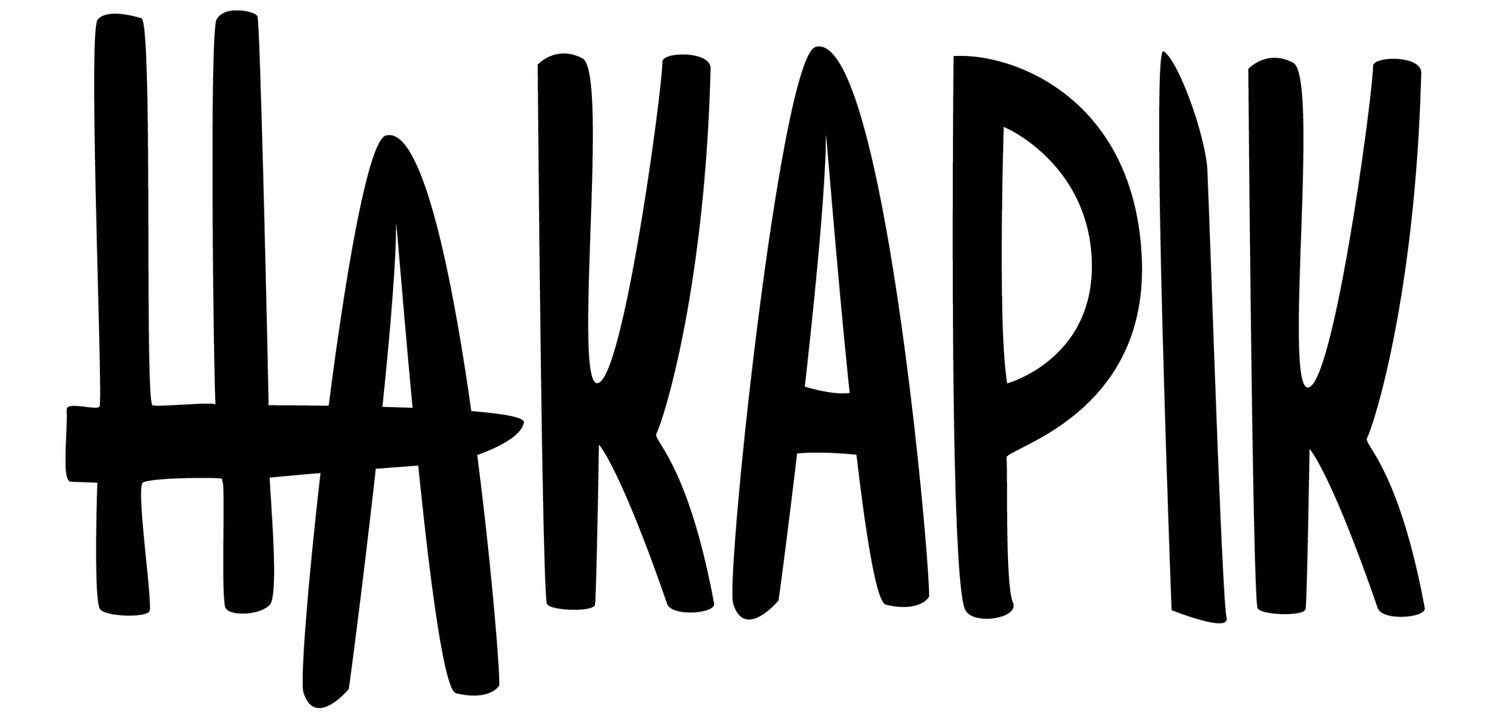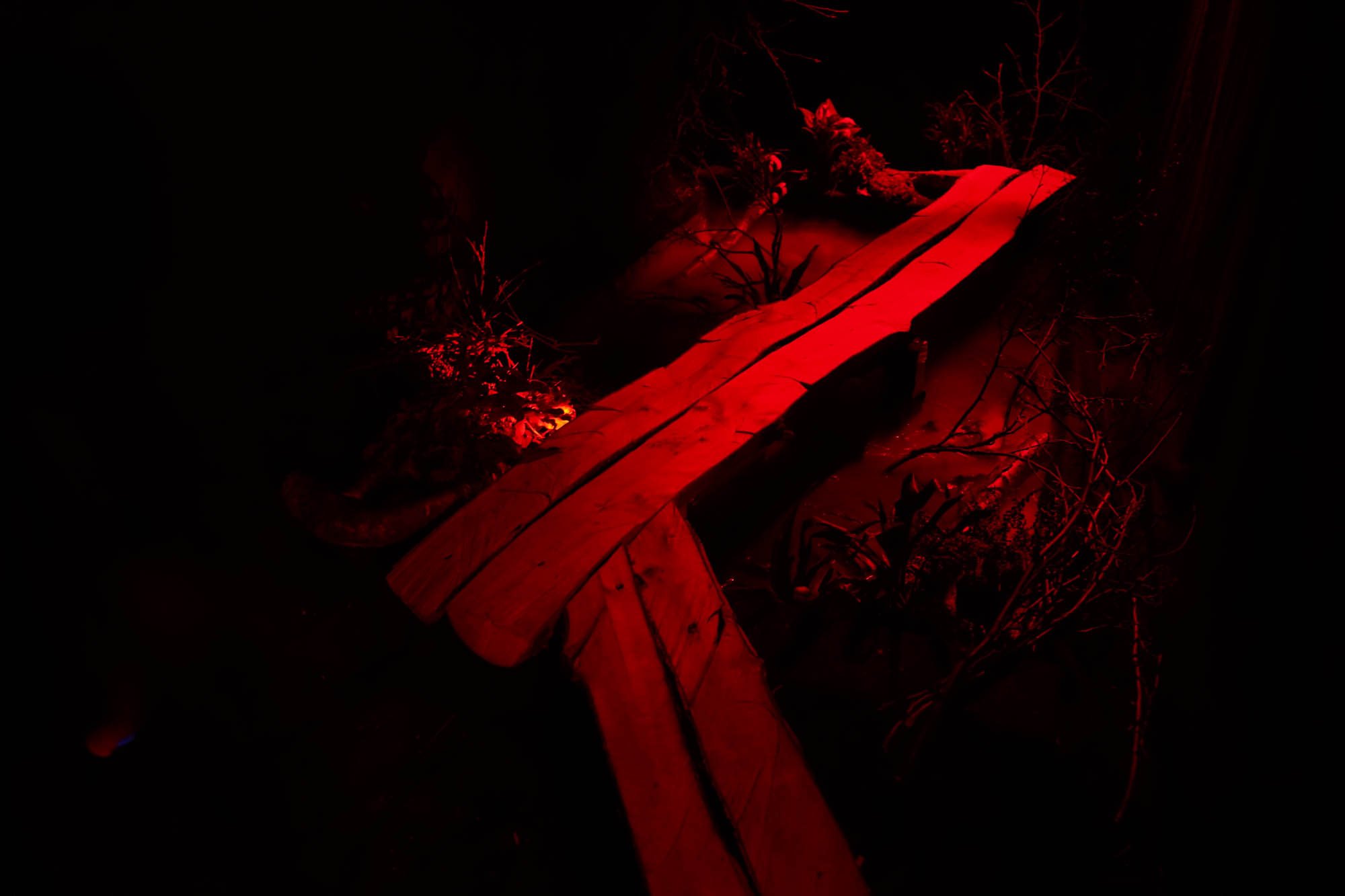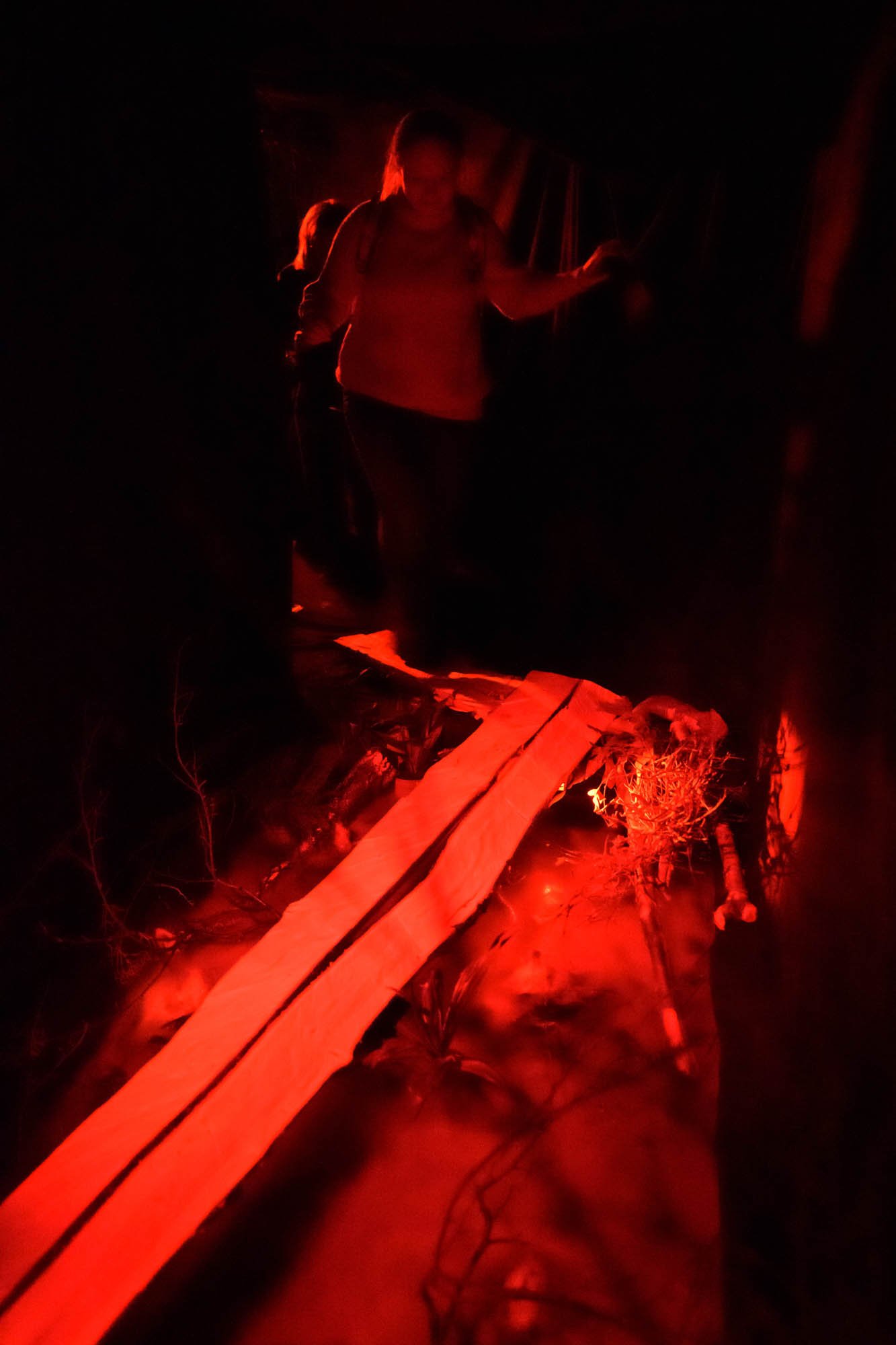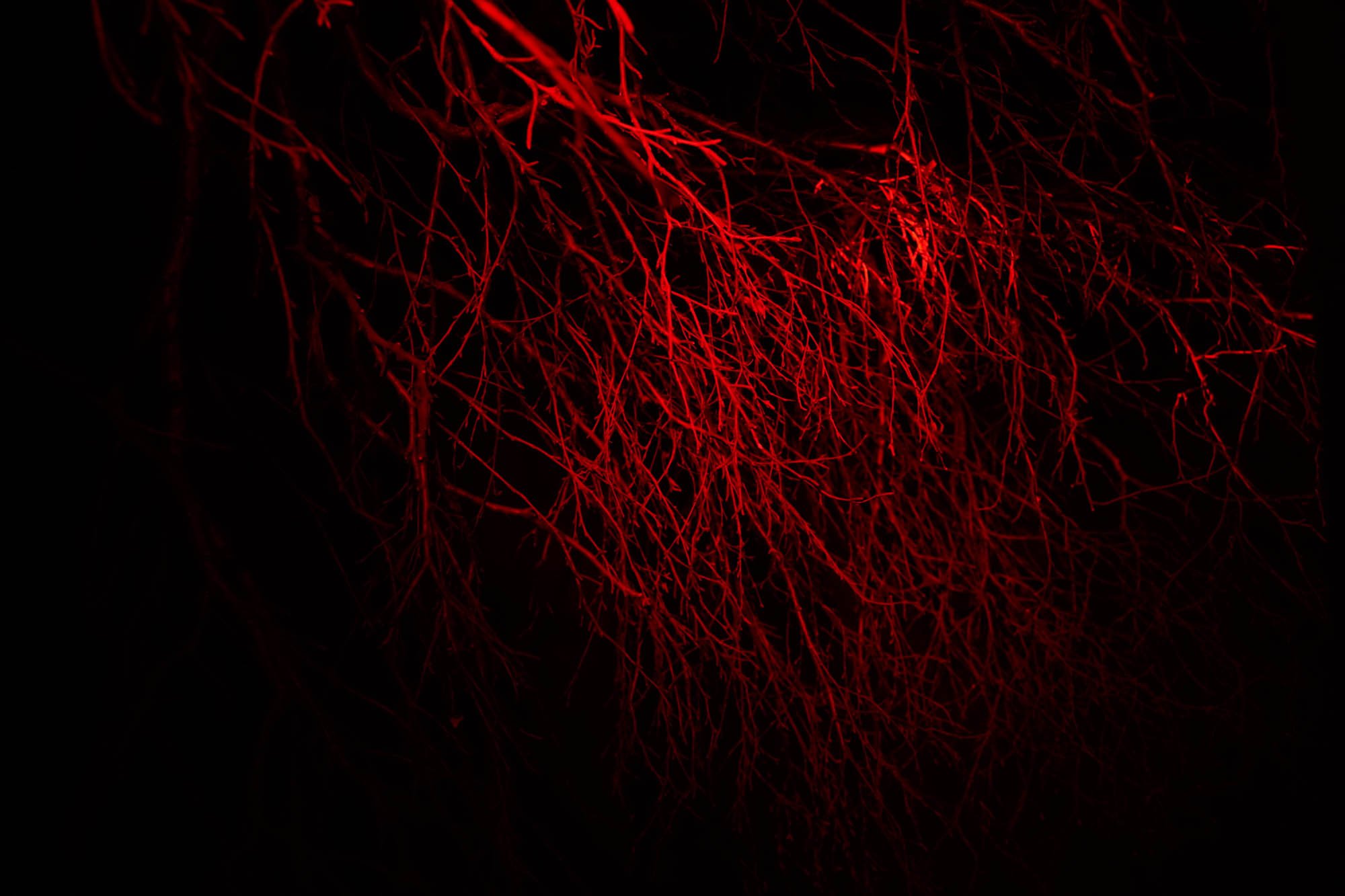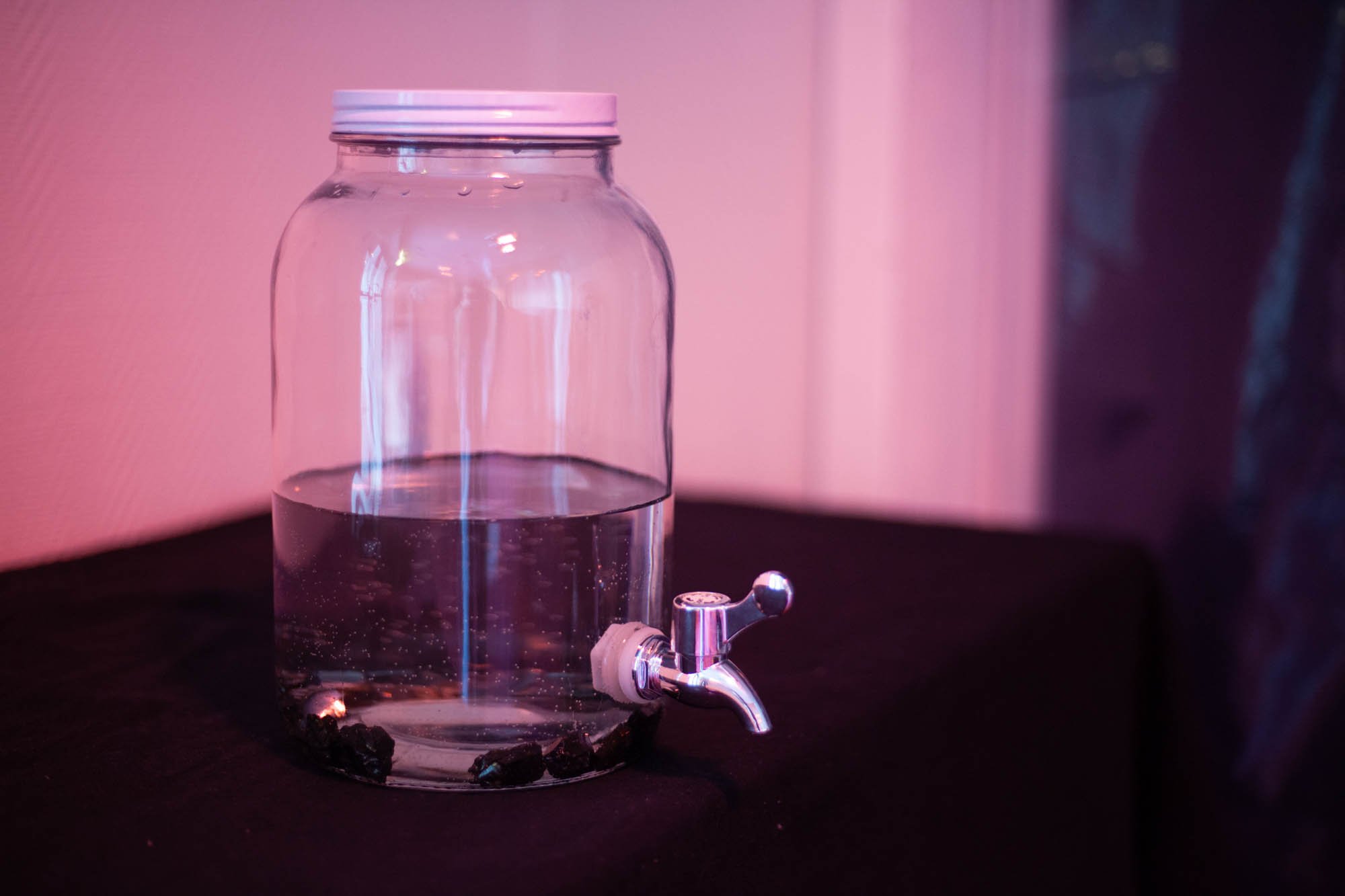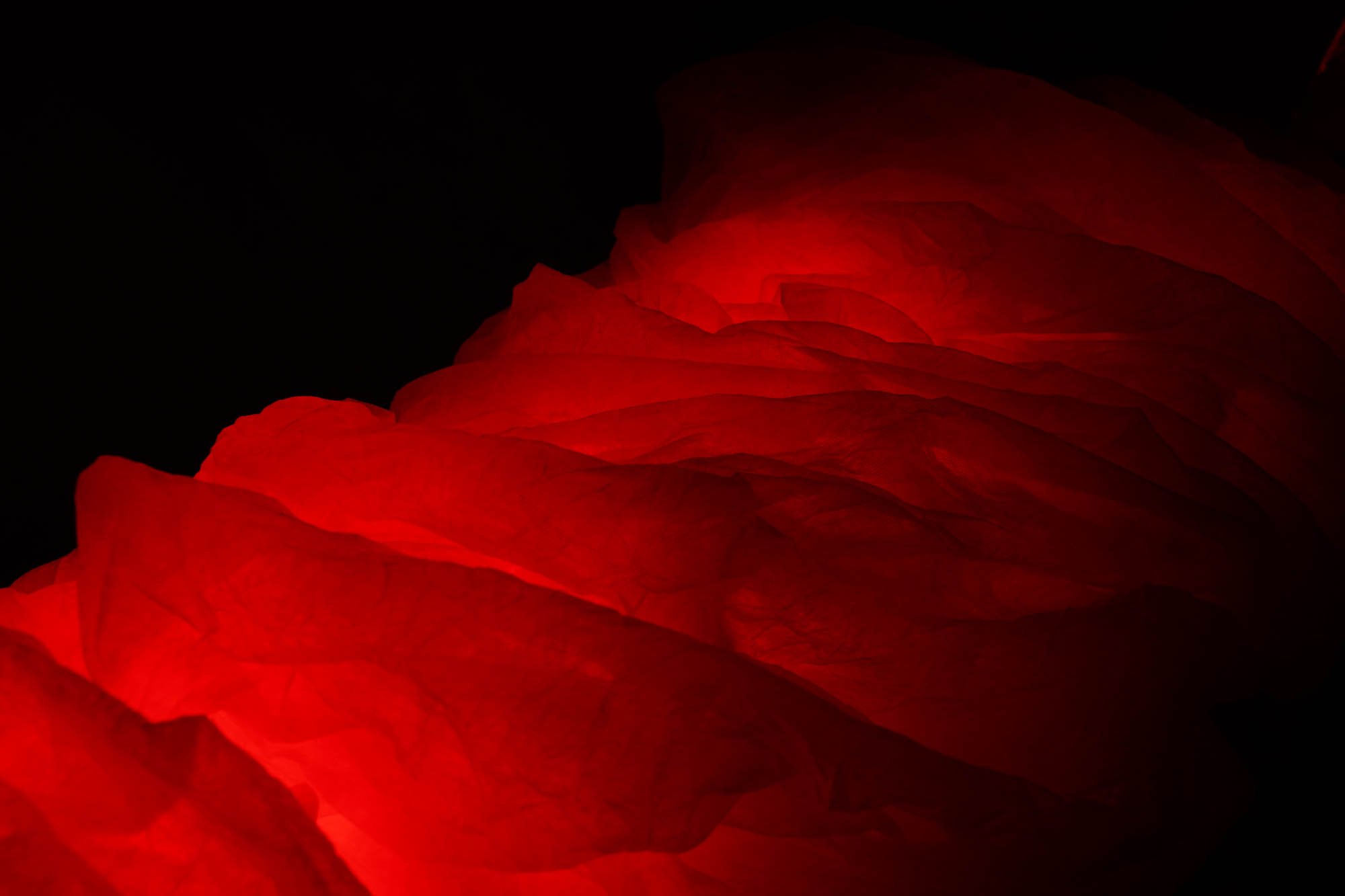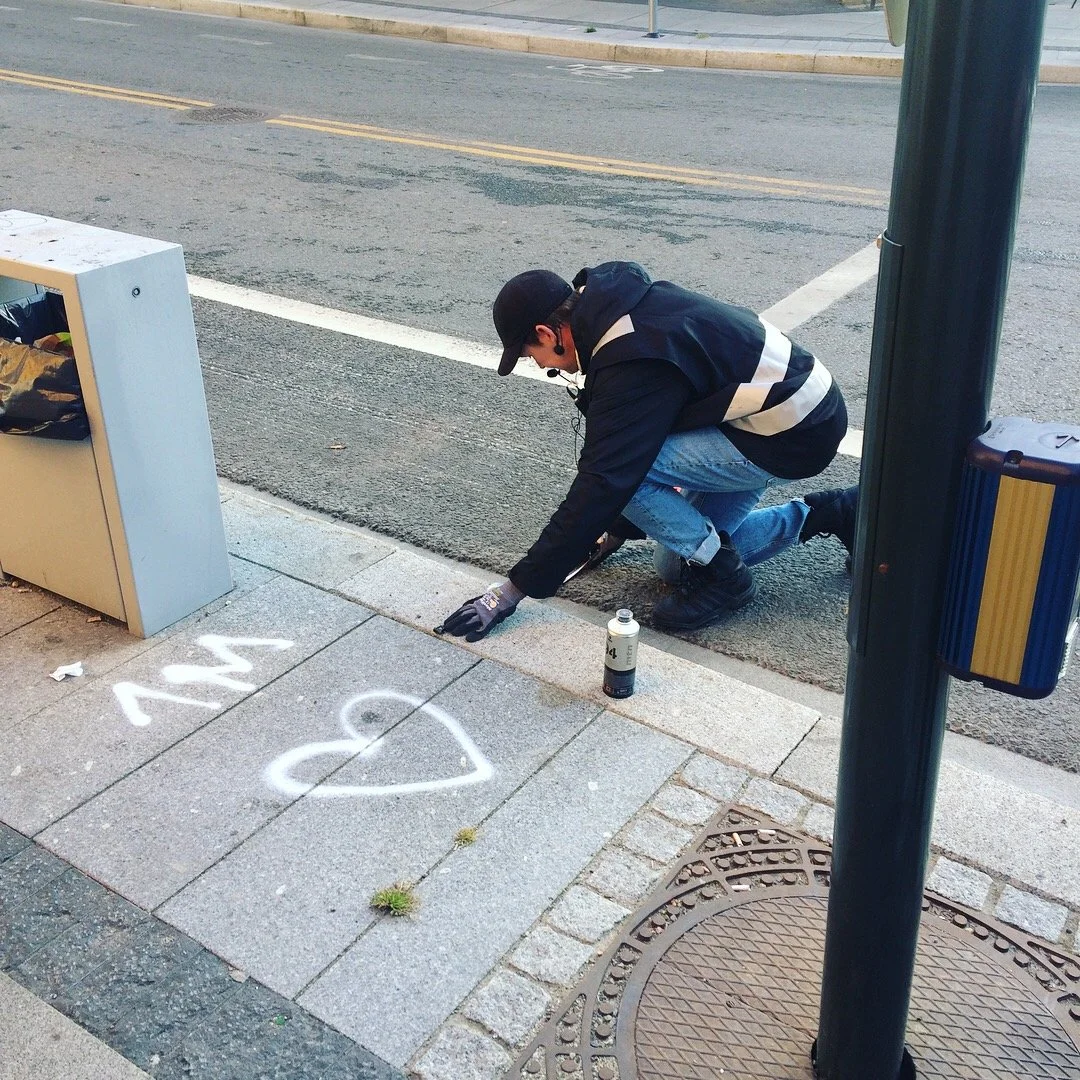CROSS-BORDER HEALING INFRASTRUCTURES
Interview with Janna Thöle-Juul and Malin Lin Nordström about their installation Waters of Mars, part of the exhibition The Best Country in the World at Barents Spektakel 2022. Curated by Pikene på broen, February 23rd - 27th, Kirkenes.
By Bianca Hisse
Since 2004 the yearly festival Barents Spektakel, in Kirkenes, has presented art and culture events discussing political issues related to the Barents Region. Due to the pandemic, many Russian artists could not be physically present in Kirkenes for this year’s edition, which took place while we watched Russia’s invasion of Ukraine. Thus the festival theme «Where do we go from here?» gained an unexpected new meaning. Pikene på broen, the producers and curators behind the festival, condemned the war but decided to continue the festival as planned. This gave us the chance to experience a five-day programme of performances, exhibitions, seminars and concerts, many of which are direct results of cross-border collaborations between Norway and Russia.
As part of the exhibition The Best Country in the World artists Malin Lin Nordström and Janna Thöle-Juul presented the installation Waters of Mars (2022), located in the basement of Turisthotellet, a former hotel that has been closed down since 2013. Inspired by the oldest spa in Russia, the installation is a dystopian environment with smells, mysterious sounds, red lights and a misty water pond. I could not avoid thinking of contemporary tourism, border crossings, climate chaos, billionaires traveling to space for luxury, and the geopolitical implications of all these movements.
In our conversation, we spoke about traveling, longing, the unhealed wounds of nature and the commodification of our desires.
Bianca Hisse: I would like to start our chat by asking about two different themes that seem to be interlinked in your installation: the tourism industry and newer forms of conquest and exploration, such as the colonisation of Mars. It seems to me that our economic system has managed to extend all these well-established tourism strategies to the next level, beyond this planet. What exactly interests you in these topics?
Janna Thöle-Juul: Quite early on we asked ourselves about our own way of traveling and the difference between being a tourist or a traveler. Is one better than the other? How do we travel as an artist when we do research? How true is the picture of a place we visit? When one cannot travel, what do we really long for? What do we long for when we dream of a place? The project itself was developed in collaboration with Russian artists, and imagines places that were inaccessible to us. I’m interested in how we perceive the world through senses, and thus physical experience became important to us in the project.
Malin Lin Nordström: Working with ecology is part of my practice, although it is not always apparent, but I think it is impossible to live in these times and not think about the environment. I am interested in human emotions, longing and desire, on an individual and personal level, as well as on a larger scale, on a structural level.
Bianca: How did you start working together, and how did this collaboration between Russian and Norwegian artists take place? (ed’s note: besides Nordström and Thöle-Juul, the following artists were participating in the exhibition project; Artem Starodubtsev, Natalia Loginova, Natalia Egorova og Victoria Kopeikina, Kristin Tårnes and Trygve Luktvasslimo).
Malin: This is the first time that we collaborate. Our dialogue started during a project organized by Pikene på Broen. The first part of the project was an online collaboration between four artists based in Northern Norway and four in Karelia. The purpose was to make a guidebook based on the fantasies of the other group’s home country. And as part of that, we sent packages by post to each other. We had several online meetings to present where we were in our processes, and what were our ideas for this exhibition.
Janna: Often when Malin was explaining her interests, I felt that I wanted to say the exact same thing and vice versa. Then Malin contacted me and suggested a collaboration. We were both interested in what we keep memories of when we travel, what are the memories that still stand with you. For example, when you land on a different continent, the air is different, the smell is different, it is warm, there are so many sensations connected to the place which you cannot send in a package.
Bianca: Is this why you chose to include smell in your installation? Since smells are such a strong component of memory and nostalgia of spaces.
Janna: Yes. We collaborated with a «smell artist», Simon Daniel Tegnander Wenzel. We gave him instructions and descriptions of sensations and landscapes we were working with, and he came up with four different scents that are spread through different parts of the installation.
Malin: When you think back and revisit places in your memory, often the experiences that are the most difficult to describe or bring back with you are also the ones which made the strongest impressions and lasted the longest in your bodily memory. Such as smell, taste, a warm wind against your skin, spatial experiences. We were interested in recreating a memory of a place we haven’t been to.
Bianca: I think it is also important to mention that I have been following Malin’s work for some years, and we have also been collaborators, so I have observed a constant interest in body sensations and sound in your practice. What are the connections between your earlier works and this new collaborative work with Janna?
Malin: I have a background in live music, and I am fascinated by the energy of a room when people gather together. I enjoy working with this energy as a material. When you go out to a club or a concert, there’s a certain magic in the atmosphere, which is created by different elements. And I like experimenting with these elements in other contexts, for example in the art context, and see what happens when you channel this energy in other ways.
Bianca: Is this energy connected to the notion of healing? When walking through the installation, I thought about how a spa is one of many healing infrastructures of modern life, but I also thought about the healing of the Earth, of nature itself. Many people truly believe it is easier to colonise Mars rather than making a better life on Earth.
Malin: When we were imagining Karelia without being able to visit, it felt so distant, we were telling each other it might as well have been located on Mars. Russia’s oldest spa, Martsialnye Vody, happens to be located in Karelia. They have treatments with sulfur-smelling mud and iron-heavy water. We wanted to discuss the role of the spa in contemporary society as a “quick fix” for our troubles. It is very easy to draw parallels with Mars as a quick fix for our unhealed wounds on Earth.
Bianca: But the experience you created in the installation is very different from the one of a spa. It is rather misty, scary and even hostile. I felt I was entering a mystical haunted house, especially because of the dark soundscape and visuals. What was the intention behind that?
Malin: This is not a direct interpretation of a spa as you can notice, haha. We wanted to create something that felt like entering into a different reality, where you experience something with your whole body. Something that might surprise you both in a pleasant or uncanny way, that makes you sharpen your senses and be in the present moment. The focus is on the bodily sensations and incorporating more senses than the visual one. You enter into this dark labyrinth where you can only see a short stretch at a time and we have altered the sound, light, temperature, humidity and scents of the room. It can be scary and confusing but some visitors also considered the experience rejuvenating.
Janna: You enter into something you are not expecting, but that might make you feel calibrated afterwards. Travelling to new places is also a journey to the unknown and what may not be as you expected.
It is more about the fantasy of a magic place with healing powers.
Malin: Or, fantasising about things that are difficult to convey unless you are present. For example, you can see images of Mars, but there is an essential part missing, which is the experience of being there. You can’t email that experience. Our everyday life is so saturated with images, almost everything can be done digitally, so on a very basic level we are trying to play with the creation of an imagined space.
Bianca: But fantasy can also generate potential frustration. When you start dreaming about something too much, you probably get disappointed when you see it in real life.
Malin: Sigmund Freud talked about the fantasy of a perfect cake. No matter how incredible that cake looks in your dreams, it will always be disappointing in reality. It will never be perfect. But even though the real cake might not be that perfect, it is better than nothing. In that sense, we can’t go to Mars, but at least we can still have this! And honestly, this is much better than Mars.
Bianca: Sometimes we don’t even know why we want the things we want. This is a very relevant topic in today’s societies, where the economy constantly fuels and shapes our desires…
Malin: But also the exploitation of natural resources, and what is currently happening politically, we can somehow see everything from the perspective of a person desiring something and not wanting to let it go. Desire and longing are an essential part of being human, you are always longing for something that can not be fulfilled. It is very uncanny to realise that all our desires are commodified.
Bianca: Since you mentioned the current political situation, how does it feel to present your work in Kirkenes now, while Russia invades Ukraine?
Janna: We were all in shock when waking up to the news that Russia is invading Ukraine. It was perhaps more important than ever to continue the dialogue with the Russian artists in the days that followed. I believe we have to continue the work towards increasing understanding of one another and reducing fear. The work of Pikene på broen is incredibly important by building bridges between people across borders and being able to discuss such important matters.




